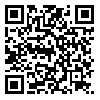BibTeX | RIS | EndNote | Medlars | ProCite | Reference Manager | RefWorks
Send citation to:
URL: http://jdisabilstud.org/article-1-3544-en.html
2- Assistant Professor, Department of Psychology, Ilam Branch, Islamic Azad University, Ilam, Iran
Abstract
Background & Objectives: Substance abuse is a significant crisis for individuals, their families, and society. The increasing trend of substance abuse poses significant challenges for individuals and healthcare systems. Psychologists and behavioral science experts have tried to identify the variables that influence the formation and persistence of substance use disorders so that they can use them in the prevention and treatment of these disorders. One of these variables is locus of control. Locus of control is a personality trait that is classified into two types: internal locus of control and external locus of control. Metacognitive therapy is an emerging approach that has been recommended in recent years in the field of treating and understanding people with substance abuse disorders. Among other treatments that are very effective in understanding the psychological problems of people addicted to drugs is time perspective therapy. Effective therapeutic strategies are essential to address these challenges. Therefore, this study aims to compare the effectiveness of metacognitive therapy and time perspective therapy on the locus of control in individuals with substance dependence living in Kermanshah City, Iran, in 2024.
Methods: The current study utilized a quasi–experimental research with a pretest–posttest and a two–month follow–up design with a control group. The research population consisted of all individuals with substance dependence who visited addiction treatment centers in Kermanshah during the first half of 2024. From this group, 60 eligible volunteers were selected through convenience sampling and randomly assigned to three groups: metacognitive therapy, time perspective therapy, and a control group (20 participants in each group). The inclusion criteria included the willingness to participate, informed consent, male gender, a confirmed diagnosis of substance dependence, substance use for more than one year, age range of 20 to 40 years, a minimum education level of high school diploma, and a Locus of Control Questionnaire score (cutoff score of 11). The exclusion criteria included missing more than two therapy sessions, simultaneous participation in other educational interventions, and the presence of severe chronic physical or mental illnesses. Data were collected using the Locus of Control Scale (Rotter, 1966). The metacognitive therapy intervention was conducted with the first experimental group over 8 sessions of 90 minutes each, once a week. The time perspective therapy intervention was performed with the second experimental group over 6 sessions of 90 minutes each, once a week. The control group did not receive any psychotherapy interventions during this period. After administering the pretest, posttest, and follow–up assessments, the collected data were analyzed using repeated measures analysis of variance (ANOVA) and Bonferroni post hoc tests in SPSS 26 at a significance level of 0.05.
Results: The results showed that the effect of time on the locus of control scores at the pretest, posttest, and follow–up stages was significant (p<0.001). The group effect also indicated that the difference between the experimental and control groups in terms of the mean locus of control scores across all stages of the study was significant (p<0.001). The results of the groups in terms of interaction effect showed that the difference between the experimental and control groups in terms of the mean locus of control scores across all stages of the study was significant (p<0.001), indicating the effectiveness of metacognitive therapy and time perspective therapy on the locus of control in individuals with substance dependence at the posttest and follow–up stages compared to the control group. Furthermore, the results showed that the posttest and follow–up scores for the locus of control in the metacognitive therapy and time perspective therapy groups significantly decreased compared to the pretest scores (p<0.001). At the same time, no significant difference was observed in the control group’s locus of control scores across different time points (p=1.000). The results also indicated a significant difference in the mean scores of the pretest in the locus of control variable with the posttest and follow–up in the experimental groups (p<0.001). However, the posttest scores of the locus of control variable did not differ significantly with the follow–up stage (p>0.05). Thus, the effect of metacognitive therapy and time perspective therapy on locus of control was permanent. Also, there was a statistically significant difference between the effectiveness of metacognitive therapy and time perspective therapy on locus of control (p<0.001), and metacognitive therapy was more effective on locus of control in drug–dependent individuals than time perspective therapy.
Conclusion: According to the results, metacognitive therapy is a more effective method in reducing the locus of control in individuals with substance dependence compared to time perspective therapy. So, it is suggested that metacognitive therapy be considered by therapists and psychology professionals when working with individuals with substance dependence.
| Rights and permissions | |
 |
This work is licensed under a Creative Commons Attribution-NonCommercial 4.0 International License. |



